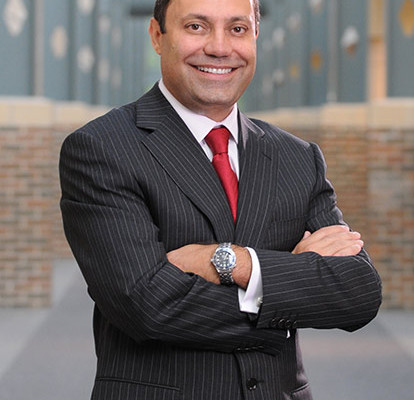When Carlos M. Cardoso speaks of the American dream, it is with the passion that derives from personal experience. Born in Angola, Africa, Cardoso came to the United States at age 17 to attend college on a soccer scholarship. Today, he leads Kennametal, a $3 billion global manufacturer with headquarters in Latrobe. Cardoso is credited with navigating the nearly 75-year-old firm through most of the last rocky decade and emerging with strong cash flow and a solid balance sheet.
Cardoso also heads the 24-member Governor's Manufacturing Advisory Council (GMAC), which last month delivered a frank assessment of manufacturing in the Commonwealth, along with a detailed slate of remedies. It found that the shortage of skilled workers is, in Cardoso's words, “nothing short of an emergency.”
Keystone Edge (KE): How does your compelling personal story affect your approach to business and your efforts on behalf of manufacturing?
Carlos Cardoso (CC): I came to the U.S. at the age of 17, entirely on my own, to go to college. And I have worked around manufacturing my whole life, starting on the shop floor and now leading a $3 billion global manufacturer.
In the best of times, manufacturers and workers conspired to create the enviable American way of life that attracted many hopeful immigrants to the U.S. while spawning technological breakthroughs and new opportunities. Since that time, major social and economic shifts made it harder for us to realize that dream in America, but I am convinced that if we make things competitively in the U.S., we can sustain the middle class standard of living. I have personally lived this American dream and I have proudly witnessed it become a rewarding reality for so many of our employees.
My personal experiences have lead me to be an advocate for manufacturing including my involvement as co-chair of the GMAC and chairman of MAPI / Manufacturing Alliance for Productivity and Innovation.
KE: The GMAC report is unsparing in its assessment of the shortage of skilled workers for manufacturing. How did this situation arise? Why is it so difficult for manufacturers in Pennsylvania — and elsewhere — to fill highly skilled jobs?
CC: The problem for manufacturing isn’t the availability of jobs, but rather the availability of skilled workers to fill the jobs. The U.S. manufacturing sector has more than one million jobs available despite unemployment hovering at 9%. Most of these positions require specialized skills and education. Nurturing and sustaining this growth will require a mix of effective policy decisions, steady supplies of world-class talent and positive shifts in investment and growth strategies for manufacturing for both business leaders and policymakers.
Major deficits in our education system hamper U.S. competitiveness on the world stage. Our global competitors continue to surpass our educational system in producing a high-volume, high-quality technical workforce forcing companies like Kennametal to search globally for talent.
KE: Still, Kennametal has been an innovator in developing talent. What tools from your company's experience can be replicated elsewhere?
CC: We hear from our customers every day about the challenge of attracting and retaining high-quality, skilled talent from machinists to engineers. We need parents and guidance counselors of high school students to understand that to pursue a college degree or manufacturing career is not necessarily an either-or choice. Manufacturing is a path that leads to higher education because these are the jobs of technicians, not laborers. Young people can make a good living right out of high school being paid well to make real things versus lower-paying service jobs. On top of that, they can take advantage of higher learning paid for by their companies.
At Kennametal, we are doing our part, not only by offering apprenticeships, co-ops and internship programs, but by partnering with local high schools to put learning in place to prepare our youth to reap the rewards of manufacturing work, including first-hand experience in our high-tech facilities. We currently have more than 320 jobs open around the world, 54% of which are in the U.S. Out of those, about 39% are in production including engineering and technology jobs. It take us more than two months on average to fill an open position, however, the more skilled and specialized, the longer it takes to fill.
KE: What do you see as the future of manufacturing in Pennsylvania? Are you optimistic?
CC: Pennsylvania manufacturing is undergoing a renaissance. With a gross state product (GSP) now reaching $71 billion, manufacturers in Pennsylvania account for 12% of the total output in the Commonwealth. Pennsylvania remains the sixth largest manufacturing state in the United States, employment continues to grow and the sector continues to experience measureable leaps in productivity driven by technology adoption and process innovation. The implementation of the recommendations of the GMAC report will only help secure a positive future to attract and retain manufacturing companies in the Commonwealth.
ELISE VIDER is Innovation & Jobs News editor for Keystone Edge. Send feedback here.
